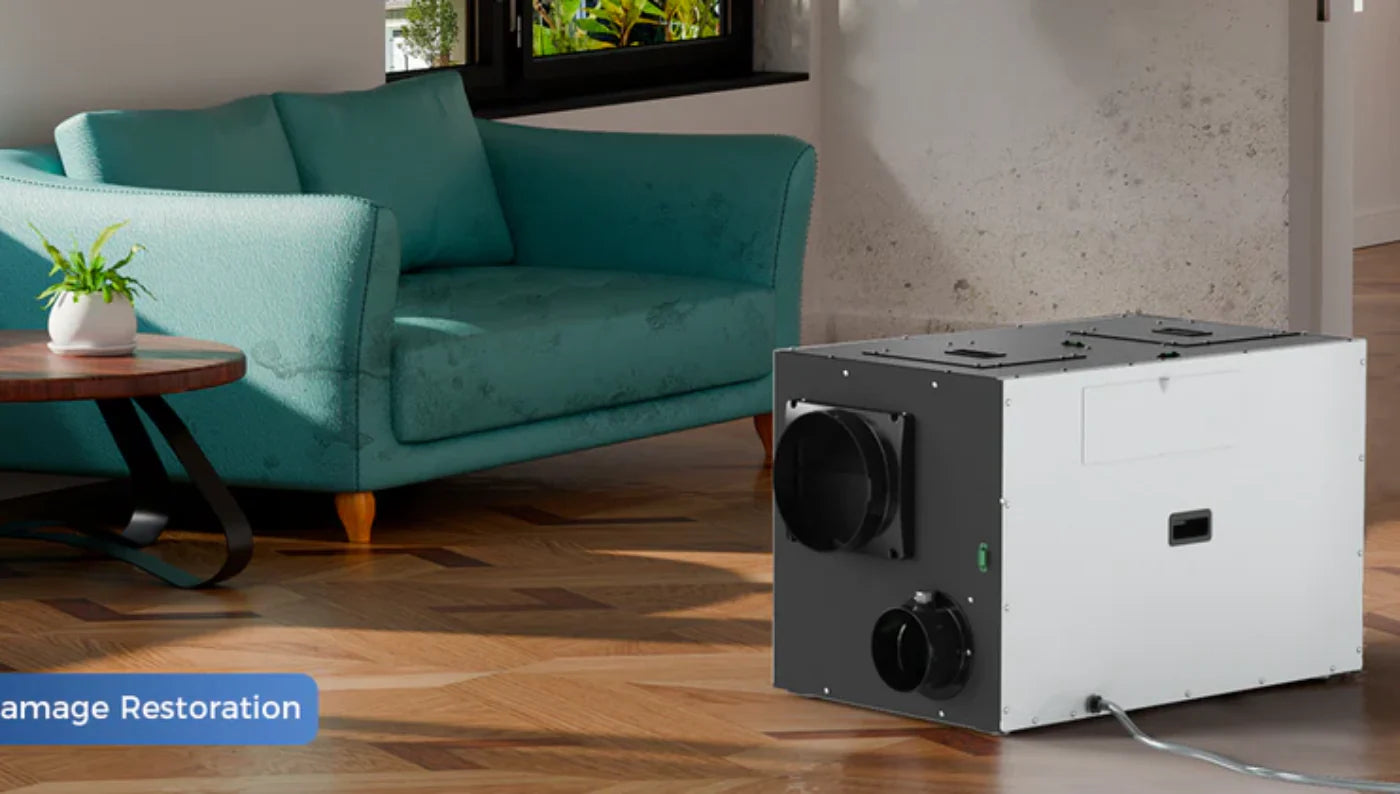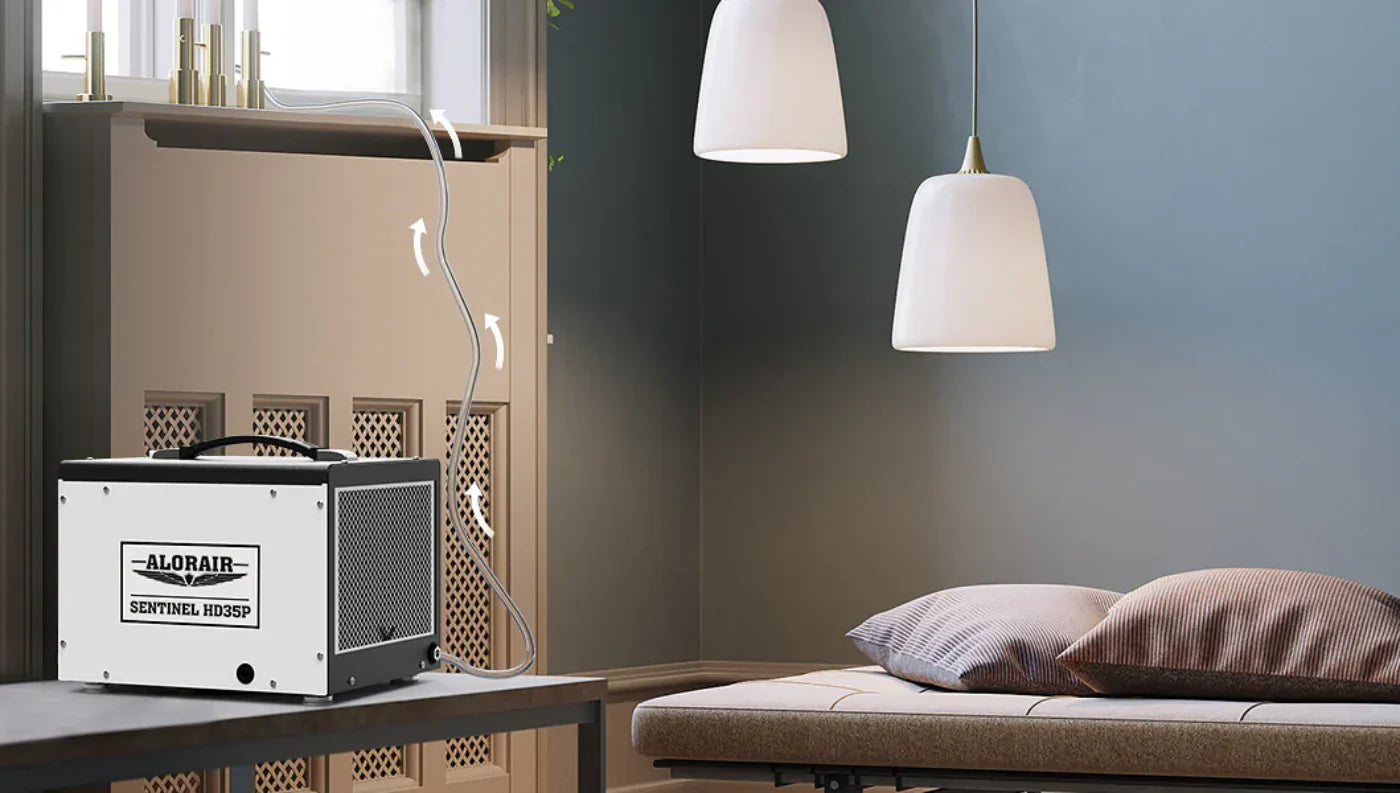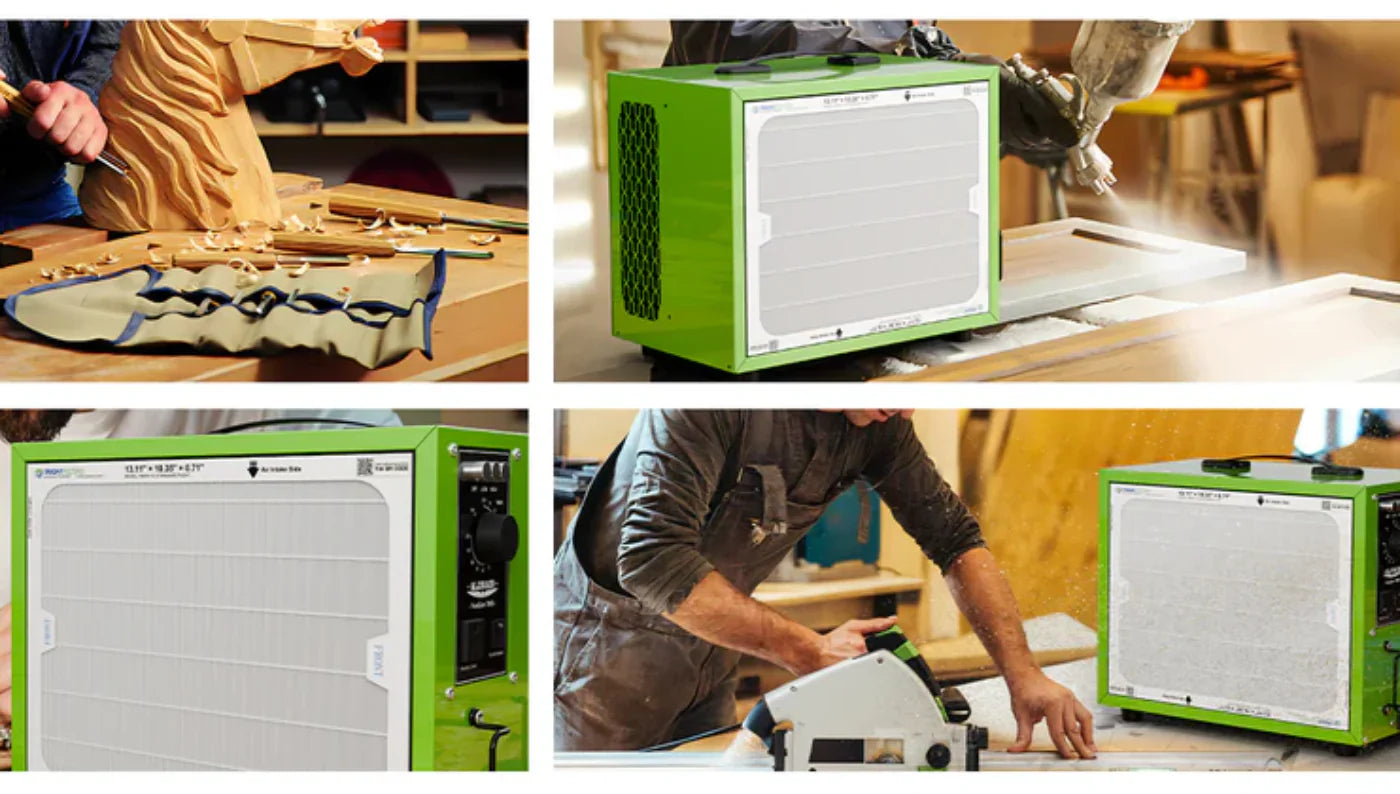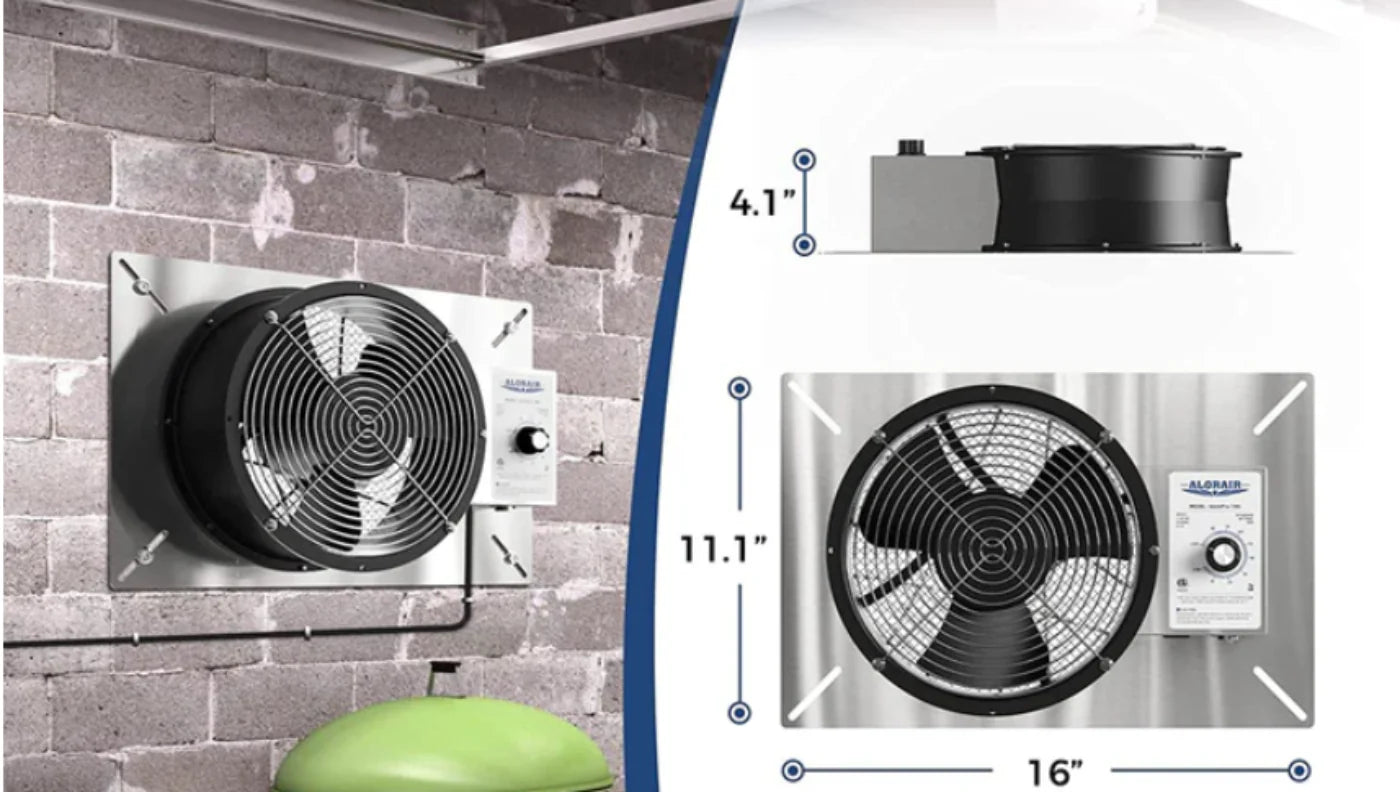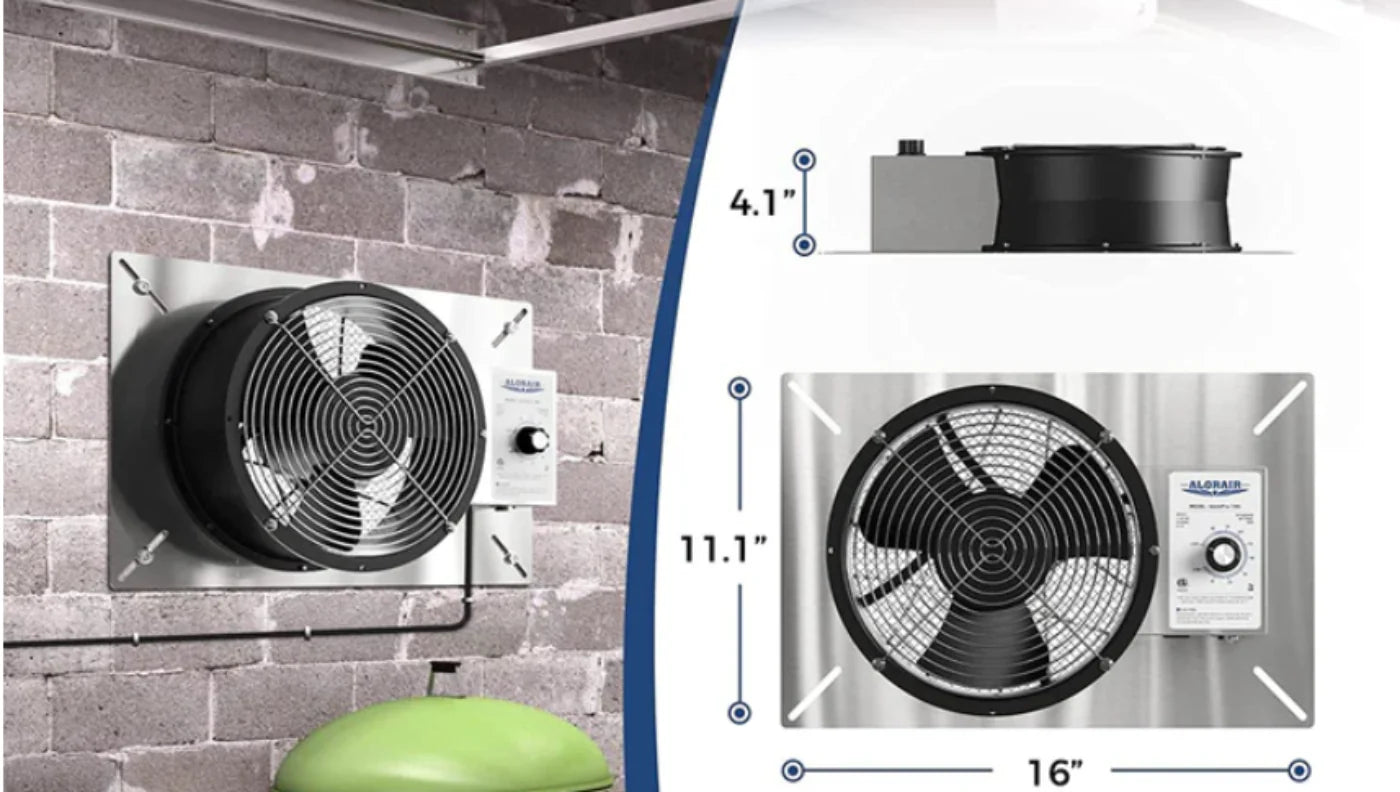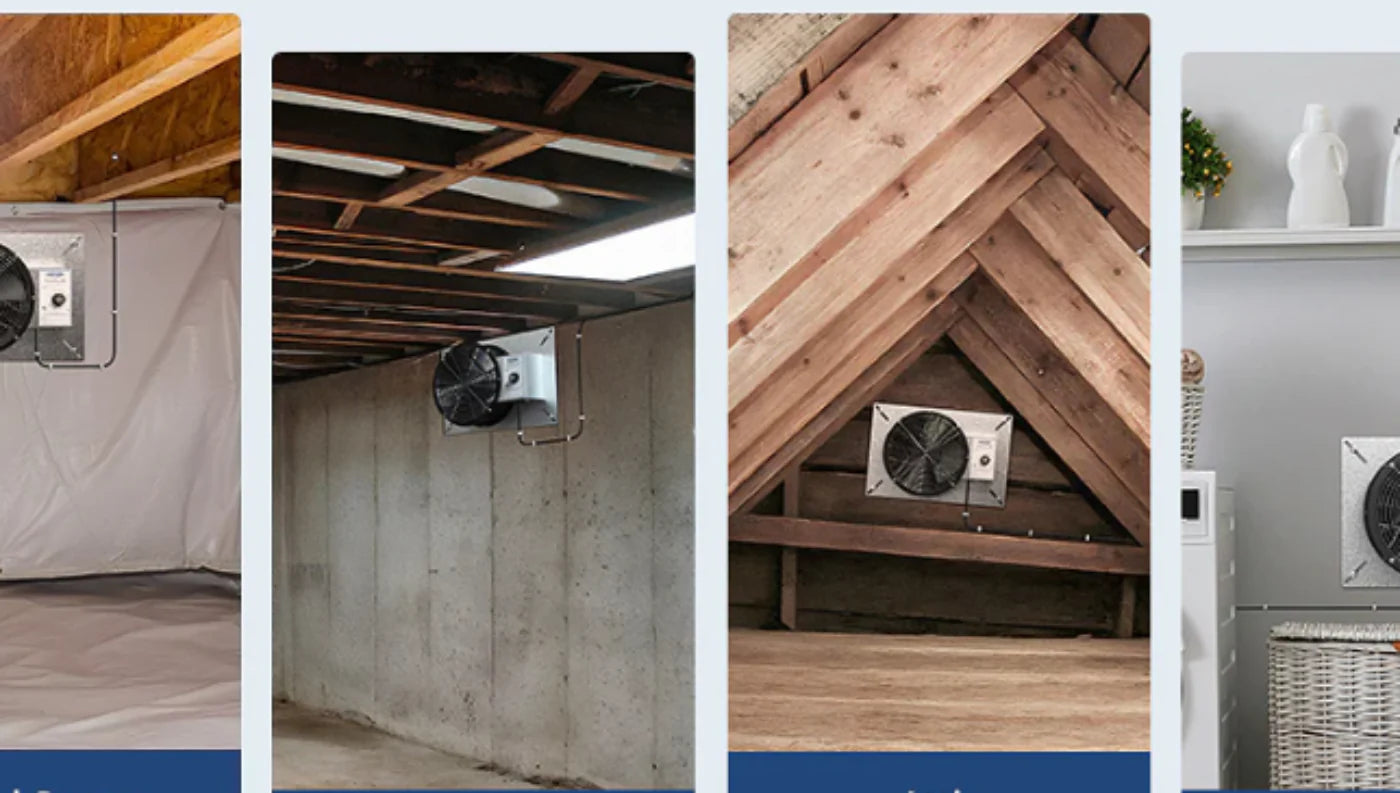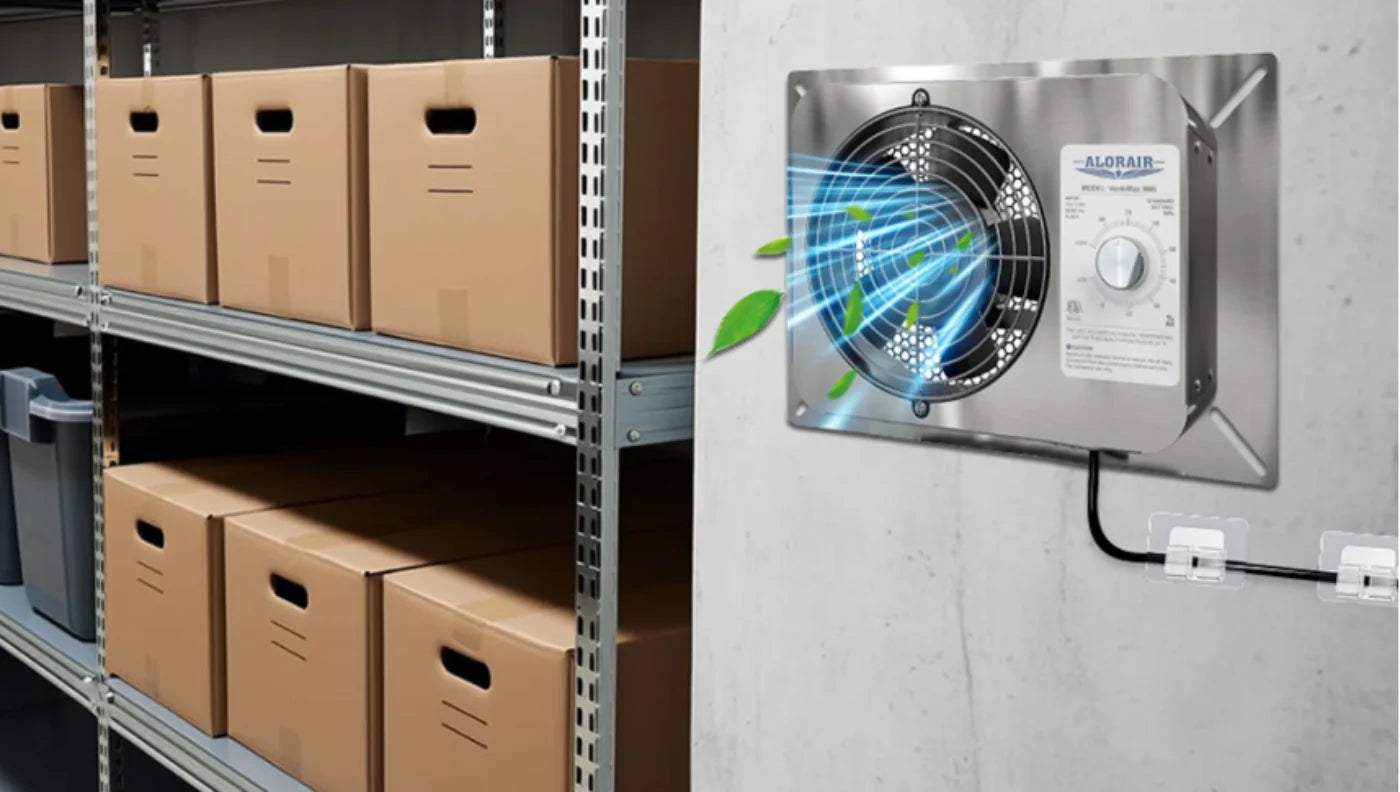The basement is a precious area of your home but often overlooked. But if your basement smells rotten, musty, pungent like a wet doggo has been lurking around. Take it seriously. A basement that smells fresh is more than just pleasant; it's a sign of a healthy home. The distinct musty odor often associated with basements can be a significant nuisance, indicating underlying issues such as excess moisture, poor ventilation, or even mold growth.
Addressing these problems is crucial not only for comfort but also for the overall air quality in your home. Enter a crawl space dehumidifier, the key to making your basement smell fresh. So, how to make basement smell good? This blog explores practical steps to improve your basement air quality, eliminate unpleasant odors, and prevent future problems.
Identify the Source of the Odor
Before you can effectively tackle basement odors, it's essential to understand where they come from. Identifying the source is the first step in any successful basement odor removal strategy. Several common culprits contribute to that musty smell in basements, and addressing each one is key to creating a fresh and welcoming environment.
Moisture and Humidity
Excess moisture is one of the leading causes of musty odors in basements. When moisture levels are high, it creates the perfect environment for mold and mildew to thrive. This not only leads to unpleasant smells but can also cause significant damage to your home’s structure and negatively impact basement air quality.
As Richard Corsi, Environmental Engineer and Dean, of the College of Engineering, University of California says, “Most of the air pollution that we breathe during our lifetimes we breathe while we’re indoors.”
Therefore, Implementing effective basement moisture control measures is critical to eliminating this problem. Consider using a dehumidifier for the basement to keep humidity levels in check, and prevent basement mold and mildew.
Mold and Mildew
Mold and mildew are notorious for causing bad odors in basements. These fungi flourish in damp, dark environments, making basements particularly vulnerable. Once mold takes hold, it can be challenging to get rid of musty basement smells without addressing the mold directly. Mold remediation is often necessary, and steps should be taken to prevent basement mold and mildew by controlling moisture levels and improving ventilation.
Poor Ventilation
According to studies, low ventilation rates are directly linked to a surge of self-reported asthma and allergy signs in children. A lack of proper airflow can cause odors to become trapped in your basement, exacerbating the problem. Without adequate ventilation, fresh air cannot circulate, and stale, damp air lingers, leading to a musty smell. To improve basement ventilation, consider installing vents or using fans to increase air circulation. This simple step can significantly enhance basement air quality and help in effective basement odor removal.
Organic Decay
Sometimes, the source of basement odors is organic matter, such as dead insects, rodents, or decaying materials. These sources can be challenging to detect, but once identified, they should be removed immediately to eliminate the smell. Regular cleaning and inspection of the basement can help prevent this issue from arising and ensure a fresh environment.
By identifying and addressing these common sources of basement odors, you can take the first step toward making your basement smell good and maintaining a healthy, pleasant space.
Steps to Make Your Basement Smell Good
Achieving a fresh-smelling basement involves more than just masking odors; it requires a proactive approach to tackle the root causes of the smell. Here are effective steps to make your basement smell good and maintain a pleasant environment.
Use a Crawl Space Dehumidifier for basement
One of the most effective tools for basement odor removal is a crawl space dehumidifier. High humidity levels in basements create the perfect conditions for mold and mildew, which are major contributors to musty smells. A crawl space dehumidifier for basement works by reducing excess moisture in the air, preventing mold growth, and helping maintain optimal humidity levels.
Pro Tip: Set your dehumidifier to maintain humidity levels between 30% and 50%. This range is ideal for preventing the growth of mold and mildew while also keeping the air in your basement fresh and comfortable.
"Maintaining optimal humidity levels in your home, particularly in basements and crawl spaces, is crucial not just for comfort, but for health, said Neil K. Kaneshiro, MD, MHA - Pediatrician and Clinical Instructor at the University of Washington School of Medicine
Improve Ventilation
Proper ventilation is key to improving basement air quality and preventing odors from becoming trapped. Increasing airflow helps disperse stale air and introduces fresh air into the space, reducing the concentration of any lingering smells.
Consider installing vents or exhaust fans to increase airflow. Air purifiers can also be effective in circulating air and filtering out particles that contribute to bad odors.
Pro Tip: Position fans or vents strategically to ensure that air circulates throughout the entire basement, particularly in corners and other areas where air might become stagnant.
Clean and Declutter
A thorough cleaning is essential for getting rid of musty basement smells. Start by removing any visible mold, mildew, or organic debris, as these are common sources of odors. Use a bleach solution or specialized mold remover to clean affected areas. Decluttering is also crucial, as piles of unused items can trap moisture and provide a breeding ground for mold.
Pro Tip: Regularly declutter your basement and keep it organized. This not only helps with moisture control but also makes it easier to spot and address potential issues before they become significant problems.
Use Odor Absorbers
Natural odor absorbers like baking soda, activated charcoal, or essential oils can be highly effective in maintaining a pleasant smell in your basement. Baking soda is excellent at neutralizing odors, while activated charcoal absorbs moisture and odors from the air. Essential oils like lavender or eucalyptus can add a fresh scent to the space.
Pro Tip: Place bowls of baking soda or activated charcoal in different areas of the basement. Refresh these natural odor absorbers every few weeks to maintain their effectiveness.
Seal Cracks and Leaks
Cracks and leaks in your basement can allow moisture to seep in, leading to persistent odors. Inspect your basement walls, floors, and foundation for any cracks or gaps and seal them with appropriate materials like caulk or concrete sealant. This not only helps in basement odor removal but also plays a crucial role in moisture control.
Pro Tip: Consider waterproofing your basement walls and floors as an added layer of protection against moisture intrusion.
Apply a Vapor Barrier
A vapor barrier is an excellent way to control moisture and prevent odors from seeping into your basement. Vapor barriers are typically installed on the floors and walls of the basement to block moisture from the ground. When paired with a crawl space dehumidifier, a vapor barrier provides a comprehensive solution for maintaining a dry, odor-free basement.
Pro Tip: Ensure that the vapor barrier is properly installed with no gaps or tears. This will maximize its effectiveness in preventing moisture-related odors.
Preventative Measures for Long-Term Freshness
Once you've taken the necessary steps to make your basement smell good, it's essential to maintain those efforts with regular upkeep. Here are some preventative measures to ensure your basement stays fresh and odor-free over the long term.
Regular Maintenance
Consistent maintenance is key to preventing odors from returning. Regularly check your crawl space dehumidifier to ensure it's functioning correctly and maintaining the optimal humidity levels. Inspect the dehumidifier's filters and clean or replace them as needed. Additionally, periodically inspect your basement for any new leaks, cracks, or signs of water intrusion, addressing these issues promptly to avoid moisture buildup. Set a monthly reminder to check your basement for any signs of moisture or odors. Early detection and prevention are crucial for maintaining a fresh environment.
Consistent Airflow and Humidity Control
Maintaining consistent airflow and humidity control is vital for keeping your basement smelling good. Run your dehumidifier regularly to keep humidity levels in check, especially during humid seasons. Ensure that your basement remains well-ventilated by using fans, air purifiers, or exhaust systems. Proper air circulation prevents stale air from accumulating and reduces the likelihood of odors developing.
Pro Tip: Use a hygrometer to monitor humidity levels in your basement. This simple tool will help you keep humidity within the ideal range, preventing mold and mildew growth.
Using Natural Air Fresheners
Incorporating natural air fresheners can enhance the freshness of your basement. Essential oil diffusers, scented sachets, or potpourri are excellent options for adding a pleasant aroma to the space. These natural fresheners not only mask any lingering smells but also contribute to a more inviting atmosphere. Place air fresheners near areas prone to odors, such as corners or areas with less airflow. Replace or refresh these air fresheners regularly to maintain their effectiveness.
Conclusion
Maintaining a fresh-smelling basement is crucial for creating a comfortable and healthy home environment. By addressing moisture control, improving ventilation, and following regular cleaning and maintenance routines, you can effectively get rid of musty basement smells and prevent them from returning. Implementing these strategies, including the use of a crawl space dehumidifier, will significantly improve your basement's air quality and ensure long-term freshness. This is all about ‘how to make basement smell good’.
Whether you're dealing with persistent basement odors or just want to keep your space smelling pleasant, these tips offer practical solutions that can be easily implemented. Remember, a little effort in maintaining your basement can go a long way in preserving the overall health and comfort of your home.
Ready to Say Goodbye to Musty Basement Smells?
Visit AlorAir Crawlspace to explore our range of high-quality crawl space dehumidifiers designed to tackle basement moisture control and odor issues. Invest in a reliable crawl space dehumidifier today to keep your home smelling fresh and clean!
Feel free to ask questions or share your own tips for keeping your basement smelling good in the comments section below. We're here to help you create a healthier, more comfortable living environment.
FAQs
1. How long does it take to get rid of basement odors using a dehumidifier?
Typically, you may notice a significant improvement in air quality within a few days to a week, depending on the severity of the moisture problem and the efficiency of the dehumidifier.
2. Can a crawl space dehumidifier prevent musty smells in the basement?
Yes, a crawl space dehumidifier is highly effective in reducing humidity levels, which helps prevent the development of musty smells caused by mold and mildew.
3. What are the best natural remedies for basement odors?
Natural remedies include using baking soda, activated charcoal, essential oils, and regular cleaning with natural disinfectants like vinegar.
4. How often should I run my dehumidifier to keep the basement smelling fresh?
It's recommended to run your dehumidifier regularly, especially during humid months, to maintain humidity levels between 30% and 50%, which will help keep your basement smelling fresh.




